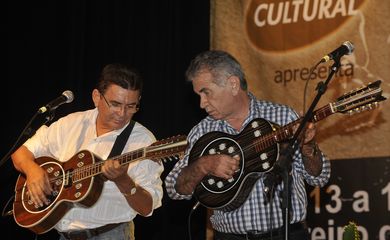Forró matrices can become Brazil's cultural heritage

The traditional forró matrices may become Brazil's cultural heritage this Thursday (9). The decision will take place at the 99th meeting of the Advisory Council for Cultural Heritage, which will be broadcast on the YouTube channel of the National Historical and Artistic Heritage Institute (Iphan).

The application for registration to make forró cultural heritage was made in 2011 by the Associação Cultural Balaio do Nordeste, in the state of Paraíba. In the last ten years, in partnership with communities that hold, a detailed description of traditional matrices was carried out with documentary and audiovisual records.
advice
The Cultural Heritage Advisory Board is made up of representatives from public, private and civil society institutions. The coordination is under the responsibility of the president of Iphan, Larissa Peixoto.
The board shall examine, consider and decide on matters relating to the registration and re-ratification of the registration of cultural property of a material nature, as well as registration and re-evaluation of the registration of cultural property of an immaterial nature. The agency is also responsible for deciding on the temporary departure from the country of goods protected by the Union, in addition to other issues relating to cultural heritage.
trough guitar
The same meeting will assess the revalidation of the cultural heritage recognition of the Way of Making Viola de Cocho, typical of Mato Grosso and Mato Grosso do Sul, and of the Iauaretê Waterfall, sacred place of the indigenous peoples of the Uaupés and Papuri rivers, in Amazonas.
For the revalidation, the communities holding the cultural assets collaborated with opinions, and the documents underwent public consultation for a broad contribution from society.
“As a rule, the revalidation of cultural assets must be carried out at least every ten years. The purpose of the initiative is to update information about the cultural property, assess the effectiveness of support and development actions, learn about changes in the senses and meanings attributed to the property, among other issues that contribute to the continued safeguarding of these heritages", says a note from Iphan .
* With information from Iphan
Text translated using artificial intelligence.





